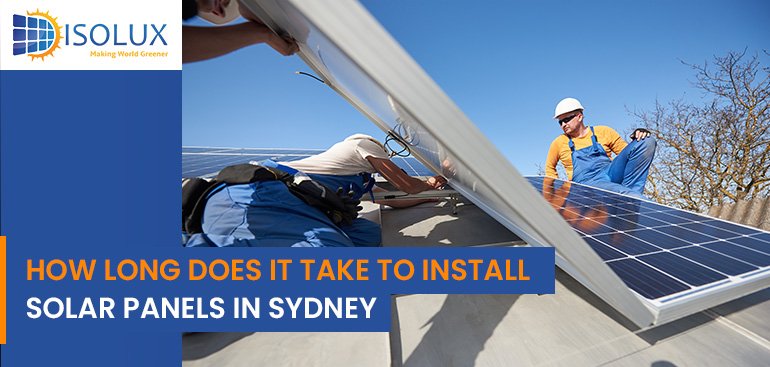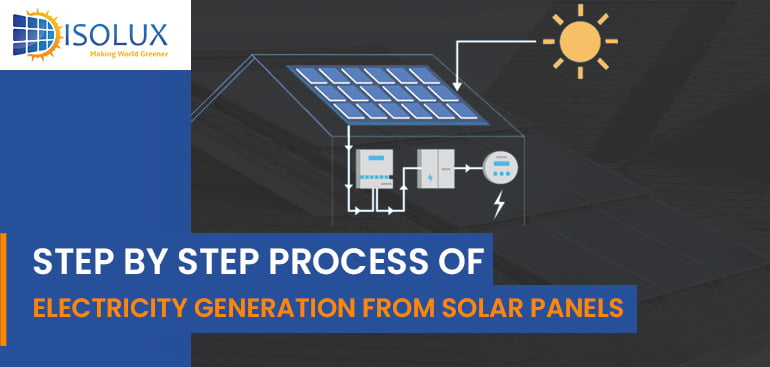Are you considering making the switch to solar energy for your home or business, but wondering about the solar panel installation process and how long it might take? Look no further! In this article, we’ll cover everything you need to know about the timeline for installing solar panels, including the various factors that can impact the length of the process.
Find the Best Solar Panel Installation Company
Here are some key factors to consider when choosing the best company for your needs:
Experience and Reputation
Look for a company that has a proven track record of successful solar panel installations, and make sure they have a good reputation in the industry. You can check online reviews, ask for references from previous customers, and research the company’s history to make sure they have a strong reputation in the industry.
Professionalism and Customer Service
Choose a company that is professional, responsive, and has a strong commitment to customer service. Make sure they are easy to communicate with, and that they take the time to answer all of your questions and address any concerns you may have.
Quality of Equipment and Workmanship
The quality of the equipment and the workmanship of the installation are critical to the success of your solar panel system. Choose a company that uses high-quality equipment from trusted manufacturers, and make sure they have a team of experienced and skilled technicians installing to the highest standards.
Competitive Pricing
Finally, make sure you choose a company that offers competitive pricing for its services. While it’s important to choose a company that offers high-quality equipment and workmanship, it’s also important to find one that fits within your budget.
Also, check out more tips on selecting the best solar company.
Factors That Affect the Time to Install Solar Panels
Before diving into the average timeline for installing solar panels, it’s important to understand the various factors that can impact the length of the process. Some of the most important considerations include:
The size of the solar panel system:
The larger the solar panel system, the more time it will take to install. This is because more panels will need to be mounted, wired, and connected to the inverter.
The complexity of the roof:
If your roof is flat and easily accessible. Then, the solar panel installation process will be much faster than if it’s sloped, has a complex design, or requires special equipment to access.
Local building codes and regulations:
Depending on your location, there may be specific building codes and regulations that need to be followed when installing solar panels. This can add time to the process, as approvals and permits may need to be obtained before the installation can begin.
The availability of equipment and labor:
The availability of equipment and skilled labor can also impact the timeline for installing solar panels. If the installation company has all of the necessary equipment on hand and a team of experienced technicians, the process will likely move more quickly.
Average Time to Install Solar Panels
Various factors can impact the length of the installation process. The average time to install solar panels is typically 2-3 days. However, this can vary greatly based on the size and complexity of the system, as well as any local building codes and regulations that may need to be followed. Here’s a breakdown of typical time frames for each major step of the installation process:
- Roof anchors – 1 hour
- Solar mounting – 1 hour
- Solar panels – 2-3 hours
- Solar inverter – 1 hour
- System testing – 1 hour
Breaking Down the Installation Process
So, what exactly happens during the 2-3 day timeline for installing solar panels? Here’s a general overview of the steps involved:
Day 1: Site assessment and preparation.
This includes a thorough evaluation of your roof to determine the best placement for the panels. As well as any necessary preparation work such as cleaning or repairing the roof.
Day 2: Panel installation.
The panels themselves will be mounted onto the roof and connected to the inverter. This is the most time-intensive step of the process and may take the entire day depending on the size of the system.
Day 3 (if necessary): Final inspection and connection to the grid.
Once the panels are installed and connected to the inverter, the installation company will perform a final inspection to ensure everything is working properly. They will then connect the system to the grid, allowing you to start generating electricity from your solar panels.
Choose a Solar Panel Type
Choosing the right type of solar panel is an important decision. It will affect the performance and efficiency of your solar energy system. Here are some key factors to consider when choosing the best solar panel type for your needs:
Cell Type
The two main types of solar cells are monocrystalline and polycrystalline. Monocrystalline cells are made from a single crystal structure and are known for their high efficiency and reliability, but are also more expensive. Polycrystalline cells, on the other hand, are made from multiple crystal structures and are less expensive but also less efficient.
Efficiency
Efficiency refers to the amount of sunlight that a solar panel can convert into usable electricity. Higher efficiency means more electricity production and less waste. If you have limited roof space, choose a higher-efficiency solar panel. It will be a good choice to maximize your energy production.
Temperature Coefficient
The temperature coefficient is a measure of how much a solar panel’s performance is affected by changes in temperature. If you live in a hot climate, it’s important to choose a solar panel with a low-temperature coefficHighs high temperatures can reduce the efficiency of the solar panel.
Durability and Warranty
Finally, consider the durability and warranty of the solar panels you are considering. Make sure the solar panels you choose are designed to withstand the elements. And manufacturer offers a comprehensive warranty to protect your investment.
Conclusion
Overall, the timeline for installing solar panels is typically 2-3 days. Although this can vary based on the size and complexity of the system, as well as any local building codes and regulations. By understanding the steps involved in the process, you can better anticipate the timeline for your solar panel installation in Sydney.
Get a Free Quote to make your home energy-efficient and reduce your monthly electricity bills with Isolux Solar.




